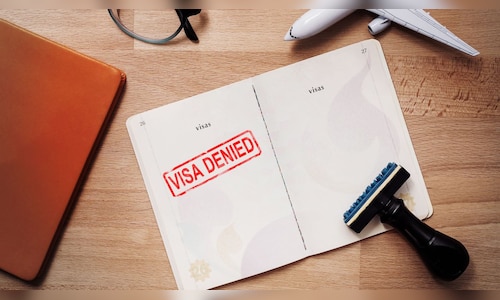The rise in turnaways for foreign travellers comes as Prime Minister Justin Trudeau’s Liberal government, which is trailing in the polls ahead of an election due next year, is trying to reduce the number of temporary residents (and possibly permanent immigrants). Immigrants have been blamed for housing shortages and high prices.
In July, Canada denied entry to 5,853 foreign travellers — who were “allowed to leave,” as Canada says, and who include students, workers and tourists — the most since at least January 2019, according to previously unreported border agency data.
Here are some things to keep in mind when applying for a visa to Canada:
– When applying for a visa, a person may convince the immigration officer of the purpose of his or her visit and that he or she undertakes to leave after the end of the permitted stay.
– If your visa is rejected, do not apply immediately with the same information. Wait a while and, if your condition improves, try again.
– Hiring an immigration representative may or may not solve the problem. So, even if you hire a representative, make sure to discuss all the details with the person.
– If you have a single-entry temporary resident visa, you will generally need a new visa to re-enter Canada. However, you may be allowed to return on your original single-entry visa if:
- Your travel is limited to the US or Saint Pierre and Miquelon; and
- Return to Canada before your authorized visa expires.
Effective immediately, Immigration, Refugees and Citizenship Canada (IRCC) has ended a temporary public policy that allowed visitors to apply for a work permit from within Canada.
A spokesperson for the Canada Border Services Agency said changes to inadmissibility determinations may be due to immigration patterns or policy changes and are decided on a case-by-case basis. The agency did not identify any specific policy changes.
“The role, policy and practice of the Canada Border Services Agency has always been to assess the admissibility of persons arriving in Canada. This has not changed,” the spokesperson said.
Disclaimer:
The information contained in this post is for general information purposes only. We make no representations or warranties of any kind, express or implied, about the completeness, accuracy, reliability, suitability or availability with respect to the website or the information, products, services, or related graphics contained on the post for any purpose.
We respect the intellectual property rights of content creators. If you are the owner of any material featured on our website and have concerns about its use, please contact us. We are committed to addressing any copyright issues promptly and will remove any material within 2 days of receiving a request from the rightful owner.

